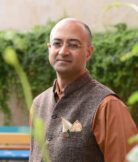From adopting the key pillars of the PERMAH framework to teaching Positive Education through STEAM and ‘Values in Action’ lessons, schools are making relentless efforts to strengthen ways to boost student
Dubai, Nov 16, 2022: K-12 schools across the UAE, including private and public schools, have been taking significant steps to promote Positive Education among both students and teachers.
Positive Education in educational institutions is based on the premise that as students go on to become young adults in society, incorporating learning skills and knowledge to encourage positive mental health will play a significant role in their development.
Geelong Grammar School, Australia, the pioneer in Positive Education, started its journey towards implementing Positive Education in 2008, and in 2014 established The Institute of Positive Education – a research, training and development institute dedicated exclusively to Positive Education.
In the UAE a concerted effort to bring in policy-level changes towards this goal was introduced around 2016-17 through the National Programme for Happiness and Positivity, as the country set about an agenda to position itself as one of the happiest countries in the world.
Positive Education training sessions were organised at the national level by the Ministry of Education for teachers and followed by similar initiatives by regional authorities such as the Knowledge and Human Development Authority (KHDA) in Dubai.
The UAE launched the Well Schools Network as part of the National Programme for Happiness and Well-being in cooperation with the Ministry of Education. By 2019, more than 250 public and private schools joined the Network. The effort was to promote the positive learning environment based on the well-being of more than 100,000 students of various educational stages and more than 9,000 teachers.
This was followed by initiatives at the school level and several inter-school collaborations to enhance Positive Education. Some of the programmes were held in partnership with the Institute of Positive Education.

As Punit M.K. Vasu, CEO of The Indian High Group of Schools says, “Positive Education brings together the science of positive psychology with best teaching practices to enable individuals, schools and communities to flourish.”
According to him, schools follow multiple programmes such as the PERMAH framework, SC(A)RF Initiative, Thrive Programme and other similar initiatives.
The PERMAH framework is implemented through elements such as project-based learning, and bullying awareness programmes.
Attempts are made to strengthen ways to boost student well-being through resources powered by PEEC (Positive Education Enhanced Curriculum). The idea is to contextualise lessons so that students can understand the real-world applications of the core well-being concepts and practices.
The Indian High School, Dubai (IHS) has also developed its own, unique wellness programme – Project Evexia, where every division has its own ‘Wellness Managers’ to take care of the smallest unit – the classroom, and is led by ‘Well-being Champions’ of the student councils and supported by teachers.
“The programme is truly by, for and of the students with a motto and commitment that… we’ll keep each other well,” says Vasu.
Character Education Programme termed as ‘Thrive Programme’’ is where counsellors teach students the knowledge, attitudes and skills necessary for academic, career and social/emotional development.
IHS has also implemented SC(A)RF Initiative (Social media, Character building, Academics, Responsibility, Financial literacy) with a vision to “create ardent individuals ready for college admissions and a mission to enable the students to reach up to the full potential, which will guide them in becoming independent and responsible individuals,” he adds.
The school has also integrated counselling with co-scholastic subjects – Dance, Art and Physical Education. According to him, the Dance Movement Therapy (DMT) is the psychotherapeutic use of movement, based on the assumption of the interconnection of body and mind, and the healing power of dance, while Adventure Based Counselling (ABC) is an innovative approach to group counselling where the group members actively participate in challenges that are designed to stimulate immediate feelings that are similar to those experienced in real life situations.
Another initiative, he says, is the monthly care letter to all educators titled, ‘Finding Your Ikigai – Workplace Well-being’, based on the Japanese principle that everyone has an ikigai – a reason for living.

Dr. Kayleigh Sumner, Head of Positive Education and Well-being, Fortes Education says it uses Seligman’s PERMA model as a framework for Positive Education, which is based on well-being and underpinned by the key principles of positive psychology, combining learning with resilience, building character and enhancing well-being.
Fortes’ Regent International School, for example, is part of the International Positive Education Network (IPEN) in the US, and has a close partnership with the Geelong Grammar School.
“At Fortes Schools we have six pillars of the PERMA+H framework that include positive emotions, engagement, relationships, meaning, accomplishment and health. We teach Positive Education explicitly through STEAM and ‘Values in Action’ lessons,” she says.
To ensure Positive Education is applied consistently and remains a priority on the agenda, the school has dedicated student and staff Positive Education Leads who work together as key drivers, ensuring that Positive Education principles are weaved throughout the subjects and strategic planning.
In an effort to reach a wider community, the school also conducts Positive Education workshops for parents, thereby creating an opportunity to learn about resilience, growth mindset and spotting character strengths.
Commenting on the role of teachers, Vasu says Positive Education curriculum motivates teachers as well as learners. “Our teachers recognise the diversity and complexity in the classroom and seek ways to meet the demands of rapid changes by focusing on student’s participation and attitudes.”

Simon Herbert, Head of School/CEO, GEMS International School – Al Khail (GIS), says the promotion of Positive Education at GIS goes beyond an approach where a person is only healthy when occupied intellectually and physically.
According to him, a growth mindset, engagement, resilience and positivity do not simply emerge from a few well-being lessons or from taking an interest in fitness. “It is the day-to-day culture of a school – reinforced by curricular attention to these values and, if possible, elements of service to other people incorporated within the educational programmes – that begins to have the greatest effect,” says Herbert.
“The teachers who come to GIS want to do more than merely deliver teaching ‘to the test’ or an educational ‘grind’ through memorisation, drilling and assessments galore,” he adds.
As Sumner points out, teachers engage with Positive Education through the training they receive and the content, which they deliver through the curriculum.
“We promote a Restorative Practice approach and use principles of Emotion Coaching to foster positive relationships throughout the school. Staff hold restorative conversations and circle times to build a sense of community and create a positive classroom climate,” she adds.
Meanwhile, the schools have already started seeing results. Vasu notes that students at IHS remain positive, balanced and resilient.
“The Circle of Inclusion and Well-being has as its objective – the empowerment of students – so that they can make decisions, solve problems, address behavioural issues, develop coping strategies and resolve difficulties they may be experiencing,” he says, adding that other programmes such as ABC, Dance Movement Therapy and Art Therapy interventions influence quality of life on various dimensions.
As Herbert points out, students at GIS have benefited from personalised approach and love to take ownership of projects and to have voice and choice.
At Fortes Education, Sumner points out that annual assessments have suggested that the implementation of the Positive Education approach has improved the well-being of students.
“This has been demonstrated through some of our key well-being indicators such as ability to manage anxiety, increased sense of connectedness to others, feeling a sense of belonging to the school and students overall rating for happiness.
“Our students have an increased awareness of their emotions and how to manage them. We have found that students understand and reflect on their character strengths to navigate challenges and build their resilience,” she says, adding that the transformation was not achieved in a single day.
“Building a Positive Educational community requires considerable time, dedication by school leadership, as well as commitment and passion from teachers and staff.
“We continue to work towards systemic and curriculum enhancement to ensure we remain up to date with current research and what we do promotes a collective effort of working towards our whole school vision and the unique context of our school,” she adds.








